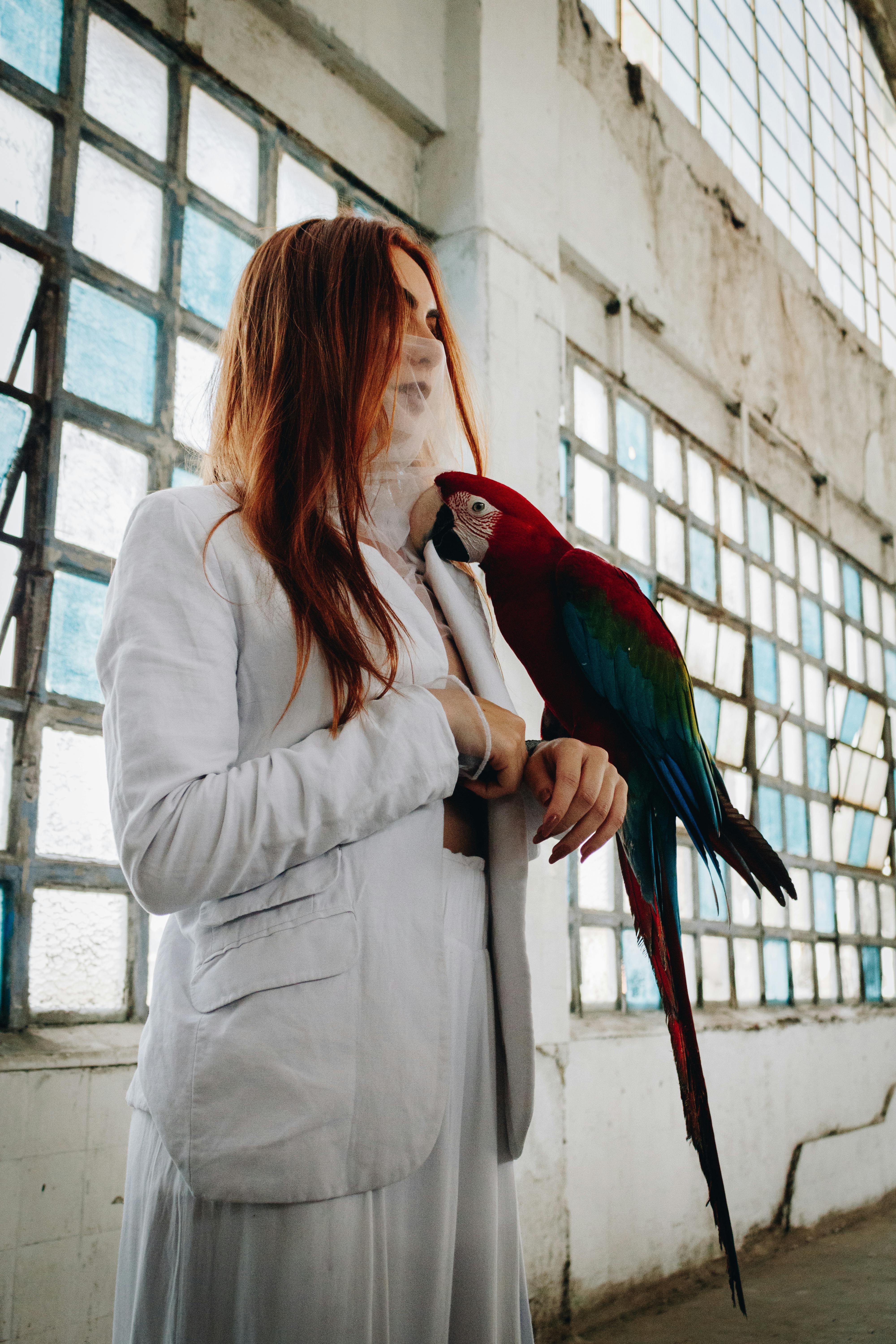
Smart Ways to Optimize Robert Rabbit for 2025 Success
As we look towards 2025, the importance of optimizing rabbit care, specifically for breeds like the Robert Rabbit and the Pitts Rabbit, becomes increasingly evident. Rabbit ownership requires a deep understanding of their needs, from nutrition to housing and behavior. Not only can proper care enhance the well-being of the rabbit, but it also fosters a strong bond between the pet and its owner. This article will guide rabbit enthusiasts through smart ways to ensure success in the care and management of their beloved pets.
This guide will cover essential topics such as rabbit health, housing, grooming, and nutrition, focusing specifically on the Robert Rabbit and Pitts Rabbit. By integrating these smart strategies, you can provide the best environment for your pet rabbits, ensuring their happiness and longevity.
Let's delve into the key areas of rabbit care that will set you up for success in the upcoming years.
Essential Rabbit Health Tips for Owners
Building on the fundamentals of rabbit care, understanding how to maintain a healthy rabbit is crucial. Rabbits like Robert Rabbit and Pitts Rabbit can face various health issues without proper care. Regular veterinary check-ups, vaccinations, and an awareness of signs of illness are essential components of rabbit wellness.
Understanding Common Rabbit Health Issues
Both Robert Rabbits and Pitts Rabbits are susceptible to certain health conditions. Common issues include dental problems, gastrointestinal stasis, and respiratory infections. By being aware of these potential ailments, owners can act quickly to seek veterinary attention.
Signs of Healthy Rabbits
A healthy rabbit displays certain behaviors and physical characteristics such as an alert demeanor, regular grooming habits, and a well-maintained coat. Monitoring these signs can help ensure your rabbit remains in optimal health. For instance, a rabbit that is active and socialized is generally a happy and healthy pet.
Rabbit Vet Care Essentials
Regular vet visits are crucial for maintaining your rabbit's health. Choose a veterinarian experienced with rabbits to ensure that they receive the best possible care. Keep track of your rabbit's health history, vaccinations, and any treatments to facilitate effective medical care.
Following this, we can explore how to create the ideal living environment for rabbits.
Creating the Perfect Rabbit Housing Environment
After establishing health needs, the next step is optimizing your rabbit's living conditions. Suitable housing directly impacts their happiness and quality of life. Whether you have indoor or outdoor rabbits, their cages or huts should provide comfort, safety, and space for exercise.
Indoor Rabbit Housing Guidelines
Indoor rabbits require a designated area where they feel safe and secure. A spacious cage that allows for standing and stretching is essential. Include soft bedding, hideouts, and toys in their setup to promote mental stimulation. Regular cleaning of the living space is crucial for their health and well-being.
Outdoor Rabbit Housing Essentials
For outdoor rabbits, a secure and spacious hutch protects them from predators. Ensure the hutch has proper ventilation and is made of durable materials. An attached run allows for exercise while keeping them safe from outdoor dangers. Make sure to consider the climate and provide additional shelter from extreme conditions.
Rabbit Habitat Setup Tips
Regardless of whether your rabbit lives indoors or outdoors, enriching their habitat can significantly enhance their life quality. Incorporating tunnels, climbing structures, and safe chew items encourages natural behaviors and keeps your rabbit entertained.
With the right habitat established, we can delve into rabbit grooming and care practices.
Effective Rabbit Grooming and Hygiene Practices
Transitioning from housing to grooming, proper hygiene is vital for your rabbit’s health. Regular grooming prevents matting and contributes to their overall wellbeing. This proactive care measure can mitigate various health issues down the line.
Rabbit Grooming Tips for Owners
Routine grooming helps maintain your rabbit's coat and skin health. Depending on the breed, the frequency of brushing may vary. Long-haired rabbits, like some varieties of the Pitts Rabbit, may require more frequent grooming to prevent tangles and mats. Use soft brushes designed for rabbits to avoid hurting their sensitive skin.
Strategies for Effective Rabbit Cleaning
Rabbits are relatively clean animals, but maintaining a clean habitat is essential. Regularly replace bedding, clean food and water dishes, and ensure litter boxes are emptied frequently. These practices help prevent odors and promote overall health.
Rabbit Hygiene and Health Link
Good hygiene is closely linked to rabbit health. Keeping your rabbit clean can prevent skin infections and other hygiene-related issues. When grooming, check for any signs of skin irritation or parasites, which may require veterinary consultation.
Having covered grooming and health, let's explore the pivotal aspect of nutrition in rabbit care.
Rabbit Nutrition: Feeding Guidelines for Optimal Health
An integral part of rabbit care is nutrition, which impacts every aspect of their health. Understanding what to feed your Robert Rabbit or Pitts Rabbit can prevent obesity and related health complications.
Essential Rabbit Food Choices
Rabbits are herbivores and require a diet high in fiber. Timothy hay should form the majority of their diet, supplemented with fresh vegetables and specially formulated rabbit pellets. Avoid high-calcium foods that can lead to urinary issues.
Rabbit Foods to Avoid
It's crucial to avoid certain foods that can be harmful to rabbits. Foods high in starch or sugar, such as bread and processed snacks, should never be fed as they can lead to severe health problems. Always research any new food before incorporating it into their diet.
Creating a Balanced Bunny Diet Plan
A well-balanced diet contributes to overall rabbit wellness. Consult with a veterinarian about specific dietary needs, especially if your rabbit has health issues or special requirements. This personalized approach ensures your rabbit is receiving optimal nutrition.
Following nutrition, let's discuss rabbit behavior and the importance of understanding their social needs.
Understanding Rabbit Behavior and Social Needs
After establishing a solid foundation in grooming and nutrition, understanding rabbit behavior is paramount in fostering a strong human-rabbit bond. Rabbits are social creatures and require socialization and interaction to thrive.
Rabbit Social Behavior Insights
Understanding their social structures is crucial. Rabbits communicate through body language, and recognizing signs of distress or contentment can improve your relationship with your pet. Establishing routines helps them feel secure.
Bonding with Your Pet Rabbit
Bonding takes time and patience. Engage with your rabbit through gentle handling and interactive play. Offering treats can also facilitate trust and connection, enhancing their emotional well-being.
Rabbit Enrichment Activities for Happiness
Introduce various enrichment activities to keep your rabbit mentally stimulated. Toys that allow for chewing, digging, and exploring can prevent boredom, which is vital for a healthy rabbit's behavior. Regular playtime should be an everyday routine.
As we move forward, we’ll tackle essential training tips for your rabbit.
Effective Training Techniques for Your Rabbit
Training is a significant aspect of rabbit ownership that enhances the bond between pet and owner. With the right methods, you can teach your rabbit commands, litter box training, and appropriate behavioral responses.
Basic Commands for Rabbit Training
Training commands like "come" or "stay" can be effectively taught to rabbits using positive reinforcement techniques. Use treats to reward good behavior consistently, helping your rabbit associate commands with positive outcomes.
Common Mistakes to Avoid in Rabbit Training
Many owners allow their rabbits to follow their own instincts, which can lead to behavioral problems. By establishing boundaries and consistent commands, you can shape your rabbit's behavior positively.
Rabbit Training Courses and Resources
Consider enrolling in rabbit training courses or exploring online resources to gain deeper insights into effective training methods. These resources can provide structured approaches and expert guidance for successful training.
Finally, let's address common questions about rabbit care to further enhance your knowledge.
Q&A: Common Questions About Rabbit Care
Owning a rabbit can come with an array of questions, especially for new owners. Here are some frequently asked questions to bolster your understanding of rabbit care.
What are the best rabbit breeds for families?
Breeds like the Holland Lop, Mini Rex, and the Dwarf Hotot are known for their friendly and sociable natures, making them great family pets.
How can I socialize my rabbit?
Socialization starts with gentle handling and regular interaction. Allow your rabbit to explore new environments and introduce them to safe, supervised interactions with non-aggressive pets.
What should I do if my rabbit shows signs of illness?
If your rabbit displays unusual behavior like lethargy or loss of appetite, consult a veterinarian promptly to address potential health issues.
Through this comprehensive guide, you now have the tools and knowledge to ensure your Robert Rabbit or Pitts Rabbit thrives in 2025 and beyond.
 example.com/image2.png
example.com/image2.png
 example.com/image3.png
example.com/image3.png